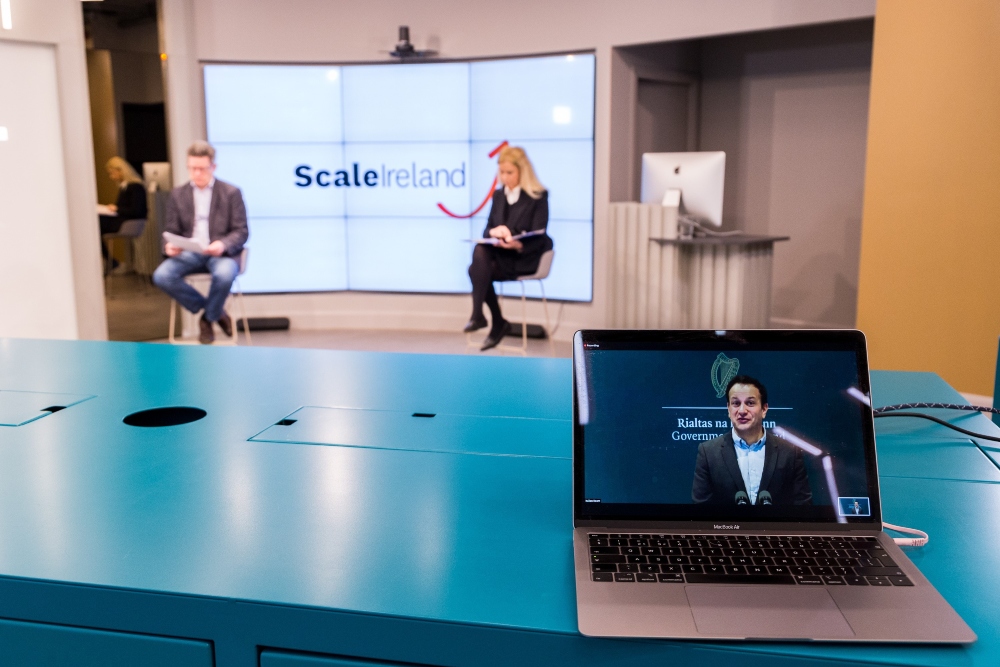Podcast Ep 50: Tigers Childcare CEO Karen Clince says the pandemic has only highlighted the importance of her sector and professionalism of childcare providers.
There’s a steely determination about Karen Clince, CEO of Tigers Childcare, that you can only admire. At times she sounds unfazed by the turbulence of the past year in terms of the business impact of the double whammies of Brexit and the pandemic, and there’s a practical and rational can-do, push forward tone to her voice.
Since establishing in 2003, Tigers Childcare has grown steadily to become one of Ireland’s market leaders in childcare provision. In 2017 it announced the acquisition of three centres from multinational childcare provider, Bright Horizons expanding its reach into south Dublin.
“I think what Covid has shown is how important the childcare industry actually is. It’s a strategic industry”
With 12 centres in Dublin and Meath and one in the UK, Tigers Childcare is one of the largest childcare providers in Ireland, catering for 1,250 children and employing 162 staff, and prior to the pandemic was averaging a turnover of €6m per year.
Almost a year ago, barely a fortnight before Ireland instigated its first Covid-19 lockdown, Clince opened Tiger Childcare’s first childcare centre in London following a €2m investment. The new 7,000 square foot facility in Elephant and Castle is designed to cater for over 120 children and provide a combination of state-funded and private places for children aged four months to twelve years.
Weeks earlier Clince welcomed a €5m capital injection from DunPort Capital Management to help fuel its expansion in Ireland and the UK.
Speaking with ThinkBusiness.ie, Clince said her response to the impact of Covid-19 on her business has been to make tough decisions but never lose sight of her ambition.
Indeed, in May Clince proactively produced a detailed guide outlining a blueprint for how crèches and childcare centres can safely reopen, operate and start providing vital support to working parents facing childcare difficulties.
Eye of the Tiger
“I think it’s the importance of childcare and the need for that childcare industry to be there that’s really been highlighted”
Recalling the speed of change last year, Clince said: “We had only opened the doors and were open two and a half weeks [in the UK] when the news came that we were going to have to close.”
Fortunately for Clince and her colleagues it was still early days for the business in the UK but because the situation was unprecedented the only response was to remain calm.
“When we closed down [in Ireland the UK] we didn’t go into panic mode. We kind of went into the mode of ‘okay, so how are we going to reopen?’”
Safety was paramount, bringing kids back safely and equally keeping colleagues safe. “How do we get the kids back safely, how do we protect our colleagues; how do we make the environment right to be able to come back? We just never stopped; we were thinking ahead from day one. And it just opened up a lot later than we anticipated. But that’s where our mindset was from day one, we just knew that we were always going to protect our colleagues because our business is built on those people who come to mind the children every day.”
As well as parents and colleagues, Clince had investors to answer to as well. “We made tough decisions. We had big plans to grow. We still have those big plans.”
Growth mindset
Before starting Tigers Childcare, Clince worked as a special needs teacher in north Dublin and then in software. But she always wanted to start her own childcare business.
“There was always a plan to grow in the UK and continue to grow in Ireland.”
Stoical about the challenges of the past year, Clince said the lockdowns gave her and her team a chance to refocus on their UK plans.
“It made us focus on getting it right. We focused very much on our staff training. How can we upskill? And how can we get ourselves ready for growth? If growth wasn’t going to come this year there are certainly things we could look at and get in the pipeline. But while we have this time that we probably will never get again, how could we perfect the business? How can we make it better? And how could we make sure we were ready to grow when things hopefully would return to normal?
“So that was where we put our focus and it was it was no harm for someone to push a bit of a brick on my head and slow me down. The thing we have in the pipeline are still there, just they are happening slightly slower than we would have anticipated.”
Because Tigers Childcare is a service business that operates in situ rather than a trade business that relies on exports, Clince said that the impact of Brexit wasn’t something Tigers feared.
“I think Irish people are particularly resilient. We’re a resilient people and we’re resilient in business. Tell us what it’s going to look like, and we’ll work around it. So, for us as a business, there haven’t been huge changes. The huge changes would come if the London economy was hit badly. London is lucky insofar as it is protected and is an economy within itself. So, we have some level of protection there. But obviously we have an eye on currency exchange, bringing that money home and how that looks.”
The pandemic, Clince pointed out, is a bigger issue than Brexit for her business right now.
“I think what Covid has shown is how important the childcare industry actually is. It’s a strategic industry.”
She pointed out that even if the pandemic changes people’s patterns around going into the office, the reality is childcare will matter even more if parents are working from home or in a hybrid manner.
“If you have a young child it is impossible to work from home,” Clince said, adding that what parents and their employers will want going forward is flexibility, especially given working hours and after-school care. And ensuring that some level of productivity will be maintained in the new normal.
“I don’t think employers will be this flexible all the time and they’ll expect you to have your childcare in order.
“So, we’re not too scared. I think it’s the importance of childcare and the need for that childcare industry to be there that’s really been highlighted. And I think the professionalism of the childcare market has really been highlighted.”
By John Kennedy (john.kennedy3@boi.com)
Published: 22 February 2021






